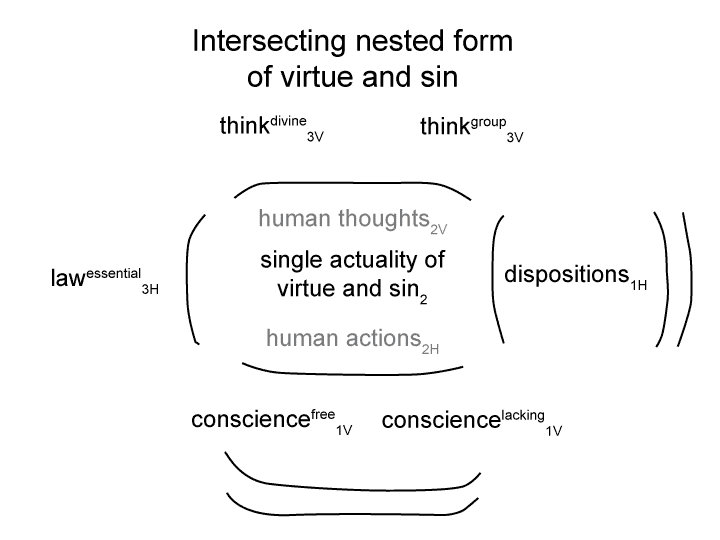Category Archives: Defining Religion
Man and Sin by Piet Schoonenberg (1964) 2.3 AD
[Come to think of it, sensible construction based on private or closely shared social constructions comes in handy for taking advantage of the ideological frameworks of others.
Hey, I can use widely held social constructions in order to cultivate my own wealth or status.
For example, consider the ambitions of state academics.
They pretend that their sensible constructions are not built on social constructions. They pretend that they are ‘not religious’, because that is the current opiate of the masses. Plus, their closely shared religious beliefs are unlikely to be challenged.
They can proselytize without risk.]
Man and Sin by Piet Schoonenberg (1964) 2.3 AC
[Infrasovereign thinkpro-objects permeate this Age, interpellating adherents of the Zeitgeist and denigrating thinkdivine.
Adding to the confusion, we rely on the our ability to make sense of language. We fall back on our apparently sensical sensible constructions and ignore the apparently nonsensical social constructions underlying any contemporary ideology.
We treat the words of contemporary ideologies as if they referred to things (and they do, but those actualities are themselves social constructions).
Our innate ability to respond to ‘talk as if it made sense’ cannot confront ‘the underlying nonsense that, once presumed, supports sensible construction’.]
Man and Sin by Piet Schoonenberg (1964) 2.3 AB-2
[Which social construction will contradict our (human) self-centered and selfish sensible attitudes.
In the Lebenswelt that we evolved in, the few contenders were family, band and tribal traditions.
In our current Lebenswelt, we are faced with a wide variety of contenders.
After the Incarnation, we are faced with the thinkgroups of our Zietgeist and the thinkdivine of the Way.
Deception is everywhere. Thinkgroups pretend to provide the Way.]
Man and Sin by Piet Schoonenberg (1964) 2.3 Z
[If science relies on social construction, why is science not a religion?
Science shares the same meaning as religion.
Science does not share the same presence and message.
This answers one question raised by the electronic book How to Define the Word ‘Religion’.]
Man and Sin by Piet Schoonenberg (1964) 2.3 Y-2
[Hmmm. That raises a question:
What are the rules of science?
What is the rule that allows scientists to construct mind-dependent beings (ens rationis) that are true to the presumed mind-independent beings (ens reale)?
It seems that the mind-dependent being must image or point to ‘the subject of study’, thereby producing a sign-object in the mind of the scientist.
Models provide images.
Experimentation provides indexes.]
Man and Sin by Piet Schoonenberg (1964) 2.3 Y-1
[Even science builds on social construction.
Consider the idea that a glass of water has more molecules than all the people on the planet and all the people who ever lived. It makes no sense at all.
Technically speaking, ‘molecules’ are ens rationis (mind-dependent beings) constructed under strict conditions that presumes ‘the existence of ens reale (mind-independent beings)’.
Note, however, the presumption (that mind-independent beings exist) is itself an ens rationis (mind dependent being).
The presumption is a social construction.
The ‘molecule’ is a sensible construction that assumes the validity of the social construction of ens reale (mind independent being).]
Man and Sin by Piet Schoonenberg (1964) 2.3 X
[In our current living world, sensible construction (using words that are presumed to be sensical) relies on social construction (using words that wrestle with the nonsensical).]

